If you’re a landowner in New Hampshire, managing and conserving your forest resources can be a daunting task. But the good news is, you don’t have to go it alone. You can turn to a forestry expert, also known as a forester, to provide you with valuable advice and guidance. To this end, the team at Tall Pines has written out this short guide on how to find a forester in New Hampshire.
Why Seek Advice from a New Hampshire Forester?
Forestry is an intricate and complex field that involves the management and conservation of forests and other woodland areas. If you’re a landowner, a forester can be a valuable asset in ensuring that your forest resources are used sustainably and managed correctly.
Foresters are highly trained professionals who have extensive knowledge of forest ecosystems and their interactions with the environment. They are experts in the science and art of managing forests and other woodland areas, with degrees in forestry or related fields. Many foresters also have additional certifications from professional organizations, which demonstrate their commitment to ongoing education and professional development.
What Are the Benefits of Working with a Forester in NH?
Working with a forester can provide you with expert advice on a range of topics related to forestry, including timber harvesting, land use planning, wildlife management, and conservation. They can help you develop a long-term plan for your forest resources that takes into account your unique circumstances and goals. By working with a forester, you can receive customized guidance on how to use your forest resources most effectively while ensuring they are protected and preserved for future generations.
Foresters can also help you navigate the complex regulations and laws related to forest management. They can provide guidance on how to comply with local, state, and federal laws and regulations related to forestry, as well as how to secure any necessary permits or approvals.
One critical area where foresters can provide invaluable expertise is in the realm of climate change. Forests are affected by climate change, and as a result, their management requires special attention to ensure that they remain resilient to the impacts of a changing climate. Foresters can provide guidance on how to protect your forest resources from climate-related risks, such as the increased incidence of pests and diseases, changing weather patterns, and other environmental factors. By working with a forester, you can ensure that your forest resources are equipped to withstand the impacts of a changing climate.
What Is a Forester?
Foresters are professionals who specialize in the science and art of managing forests and other woodland areas. They are experts in the ecology of forests and have extensive knowledge of the interactions between different components of forest ecosystems. Foresters are trained to understand the unique characteristics of different forest types, including the trees, plants, and wildlife that make up these ecosystems. They are also knowledgeable about the processes that govern forest growth and how different factors, such as climate and soil conditions, affect these processes.
Foresters typically hold a degree in forestry or a related field, such as environmental science, ecology, or natural resource management. They receive specialized training in forest management, including topics such as forest ecology, silviculture, forest economics, and forest policy. Many foresters also have additional certifications from professional organizations, such as the Society of American Foresters or the American Forest Foundation. These certifications demonstrate that the forester has met certain standards of knowledge and expertise in the field of forestry.
Foresters are knowledgeable about the best practices for managing and conserving forest resources. They can provide expert guidance on topics such as forest management planning, timber harvesting, reforestation, and forest protection. They can also provide advice on the conservation of forest resources, including the protection of sensitive species and habitats. By working with a forester, you can ensure that your forest resources are being managed in a sustainable way that maximizes their benefits while preserving them for future generations.
Foresters are also knowledgeable about the laws and regulations that govern forest management in New Hampshire. They can provide guidance on how to comply with local, state, and federal laws related to forest management, as well as how to obtain any necessary permits or approvals. This expertise can help you avoid costly mistakes and legal issues related to forest management.
Benefits of Working with a Forester
Working with a forester can provide numerous benefits to those who own and manage forests and woodlands. One of the most significant benefits is that a forester can help you develop a long-term forestry plan that will ensure your forest resources are managed and used sustainably. This means that you can create a plan for the future of your forest, taking into account the changing landscape and climate over the long term.
Foresters can also provide you with advice on how to protect your forest from pests and diseases. They are knowledgeable about the different pests and diseases that can impact your forest, as well as the most effective ways to prevent and control them. They can also help you develop a plan for managing invasive species and other threats to the health of your forest.
A forester can also provide guidance on how to harvest timber in a sustainable way. They can help you develop a harvesting plan that takes into account the growth and regeneration of your forest, ensuring that you don’t overharvest or damage the forest ecosystem. They can also advise you on how to minimize the impact of timber harvesting on wildlife habitats and other forest resources.
In addition to providing advice on best practices for forest management, foresters can also help you comply with laws and regulations related to forestry. They are knowledgeable about the legal requirements for forest management in New Hampshire, including permits, approvals, and other regulatory issues. By working with a forester, you can avoid legal issues and ensure that your forest management practices are in compliance with all applicable laws and regulations.
How to Find a Forester in New Hampshire
Finding a qualified and experienced forester in New Hampshire is an important step in ensuring that your forest resources are managed and used in a sustainable way. However, finding the right forester can be a challenging task, especially if you are new to the industry or are not familiar with the resources available to you. Fortunately, several resources are available to help you find a forester in New Hampshire.
One of the best resources for finding a forester is the New Hampshire Division of Forests and Lands. They maintain a directory of certified foresters in the state, which includes contact information and other relevant details about each forester. This directory can be accessed online and is a valuable tool for those who are looking to hire a forester. Using this directory, you can find a certified forester who meets your needs and requirements.
In addition to the state directory, many foresters advertise their services online. You can search for foresters in your area using a search engine and then visit their websites to learn more about their services and expertise. This is a good way to find a forester who specializes in the type of forest management that you need, such as timber harvesting or wildlife management.
Local conservation organizations and forestry associations can also be a valuable resource for finding a forester. These organizations often maintain lists of foresters in the area and can provide recommendations or referrals based on your specific needs. You can contact these organizations directly or attend local meetings or events to network with other landowners and foresters in your area.
Finally, word-of-mouth referrals can be a useful way to find a qualified and experienced forester. You can ask friends and family members who own forested land if they have worked with a forester in the past and whether they would recommend them. You can also ask other professionals in the industry, such as loggers or sawmill operators, for their recommendations. By getting referrals from people you trust, you can find a forester who has a proven track record of success.
Questions to Ask When Hiring a Forester in NH
When hiring a forester, it is important to carefully evaluate their experience, qualifications, and services. To find the right forester, it is essential to ask the right questions to ensure you have a good understanding of their expertise and approach to forestry management.
When you first meet with a potential forester, ask about their background and experience. This includes their educational background, certifications, and experience working in the forestry industry. You may also want to inquire about their specific areas of expertise and whether they have experience with your particular type of forest or woodland.
Asking about their approach to forestry is also essential. Each forester may have their own unique approach, so it’s important to find one whose approach aligns with your goals and values. You may want to ask how they prioritize conservation, what sustainability practices they use, and how they evaluate the health of your forest.
Another important factor is to consider the forester’s services. Foresters may provide a range of services, including forest management plans, timber harvesting, wildlife habitat improvement, and more. Ensure that the forester’s services align with your needs, and ask for specific details on how they plan to achieve your goals.
In addition to expertise and services, the forester’s rates and availability are also important considerations. Inquire about their hourly rate, fees for specific services, and the overall cost of managing your forest resources. You should also ask about their availability, as some foresters may have limited availability during busy seasons.
Conclusion
In short, a forester can be a valuable asset to any landowner in New Hampshire. Seek the advice of a qualified and experienced forester to ensure your forest resources are managed and used sustainably. Following the suggestions above, you can find the right forester, but you might not have to look so far. At Tall Pines Forest Management, we provide a wide range of forestry services for landowners. Reach out today to learn more.


0 Comments